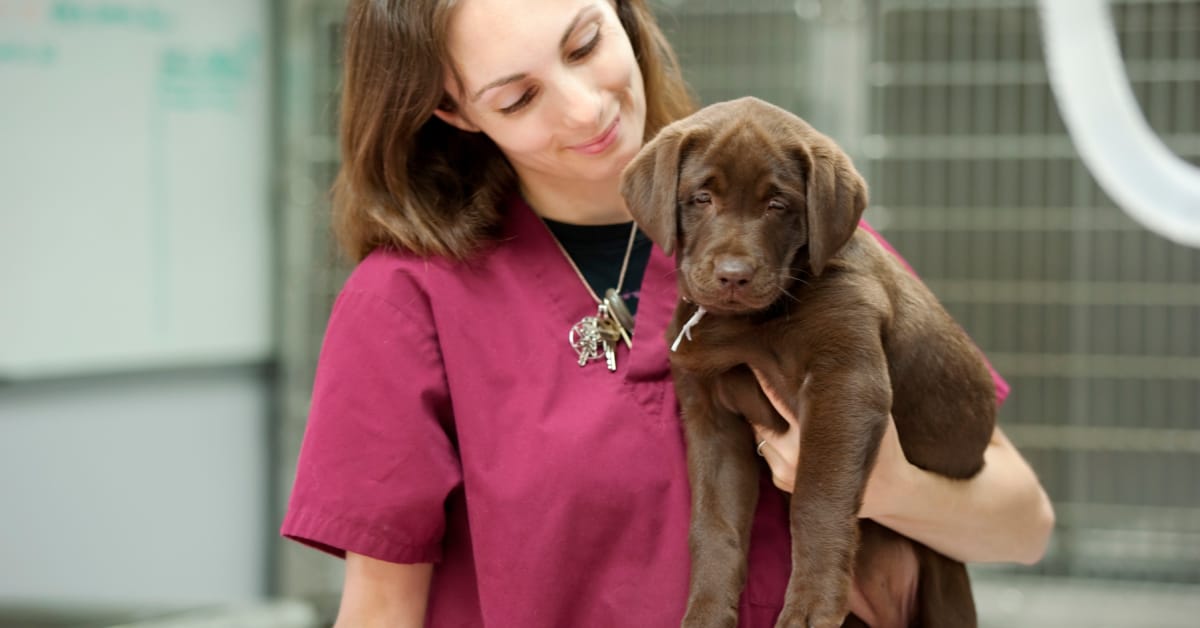We all know that Labradors are fun-loving and sweet dogs, but there are tons of things you may not know about your furry friend. Check out these things to know about Labradors puppies.

Labradors Are Bundles of Energy
Labradors often seem like laid-back dogs, especially when they are older. However, they are full of energy for the first few years of their lives.
Labradors were specifically bred to work, swim, run, hunt, etc. because they are working dogs. Therefore, they were specially bred to have lots of energy to handle all of that physical activity.
That means your Labrador will need to exercise a lot to burn off that excess energy and stay healthy. If your Lab does not get enough physical activity done in a day, they will likely show destructive behaviour like chewing your furniture.
Most Labradors Love Water
Remember how we just mentioned that Labs were bred to swim? Well, they usually love to swim, too!
Most Labradors will jump into any body of water that they see. They have special webbed toes and an “otter tail” to help them paddle through the water like a pro.
Plus, Labradors have waterproof, thick coats that can handle very cold water. Therefore, you should try to not be surprised if your Lab puppy suddenly jumps into a lake!
To keep them safe, make sure you teach them how to swim safely before letting them swim in a big body of water alone. You can get puppy floaties for them to help them learn if your puppy is hesitant.
Labradors Shed Heavily
An example of very important things to know about Lab puppies is that they shed very heavily. Your Lab puppy may not shed a lot for the first few months of their lives.
However, your puppy will lose their “puppy coat” when they are about 4-6 months old. During this time, your Lab puppy will look patchy and shed all of their old furs.
There is no need to worry because your puppy will grow their new adult coat. However, your Labrador will continue to shed for the rest of their lives.
You may not see a lot of fur lying around during the colder months. However, they will start to heavily shed once the warmer months come rolling in.
You can regularly groom your dog to keep the excess fur at bay.
Labradors Are Very Versatile Dogs
As mentioned earlier, Labradors are excellent working dogs that are great on farms, and they can hunt as well. But did you know that Labradors are excellent dogs for almost anything?
Labradors are a popular choice when it comes to service dog work. You will often see a Labrador as a therapy dog, part of drug and bomb detection, search and rescue teams, etc.
They are also common breeds for guide dogs for people with impaired vision. They can even join you in sports like running and hikes!
Labradors are probably very versatile because they are obedient and love to please their owners. While it may take some time to fully train them, they are indispensable at their jobs once they know what to do.
There Are 3 Color Types
There are three main color types for Labradors. The three colors are chocolate, black, and yellow.
Of course, there are variations or “diluted” colors, like how the silver Labrador is a diluted version of the chocolate Labrador. Another example is how the charcoal Labrador is a diluted version of the black Labrador.
Color Does Not Dictate Personality
Some people think that the color of your Lab will dictate what kind of personality they will have. Some people believe that black Labs are fantastic for hunting, but yellow Labs are lazy.
However, there is no real evidence or science that can back up those statements. Most people say those things because of their own Labradors and experience, but that does not mean your Labrador will be exactly the same.
You May Need to Hire a Professional Dog Trainer
Labradors are fantastic dogs, but they may not be easy for first-timers to teach. They have tons of energy and are very strong, so newbie dog owners may feel intimidated by their Labs.
Luckily, you can join training classes or hire a professional dog trainer for one-on-one classes for your dog. These classes will help discipline your dog and teach them how to properly socialize.
Health Concerns
While Labradors look like strong and sturdy dogs, they can also be prone to certain diseases and conditions.
For one thing, Labradors are one of the dog breeds that are most likely to be obese. Labradors are very hungry dogs, so they can easily fool their owners into giving them more food than they need.
Some Labradors can inherit certain conditions from their parents. For instance, it is possible for a Lab puppy to inherit eye diseases (progressive retinal atrophy, cataracts, etc.) and hip dysplasia.
Their Growth
Your Lab puppy may grow like a weed in a garden. They will be small little babies when you first get them, but they will likely be twice their size after a few months.
However, it is important to note that Labradors usually grow slowly since they are big dogs. Most Labradors only reach their full weight and height when they are about 2 years old.
Keep in mind that even if your Labrador looks like an adult, they may not think like one. Most one-year-old Labradors will still think like puppies, so you need to be patient with them.
A Shorter Life Span
Most healthy Labradors will live until they are 10-12 years old. However, it is common for them to pass earlier than that, especially if they had a disease.
Most larger breeds tend to live shorter lives than smaller dogs. Research suggests that bigger dogs have shorter lifespans because bigger dog’s bodies grow faster.
To Conclude
We know that Labs are sweet, but you can learn more about your dog’s breed and tips by reading the essential things to know about Lab puppies facts above.







